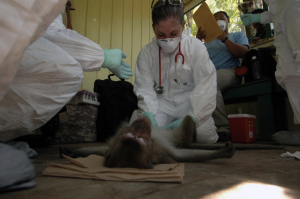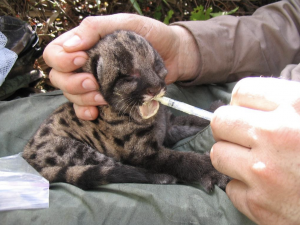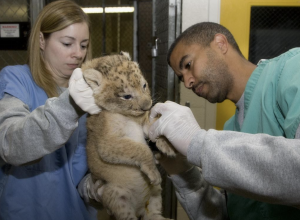Is a Wildlife Veterinary Career a Viable Option?

Source: U.S. National Archives
After becoming a qualified veterinary scientist, you may be wondering if you can transition to wildlife veterinary positions. The additional training required, as well as other obstacles in the education process, dissuade many undergraduates from pursuing this dream.
However, a wildlife veterinary career is a viable option for those with the right resources and enough perseverance. Here is a brief guide on the requirements and challenges of converting your normal veterinary expertise into specialized wildlife training.
Getting Started: What You Need to Know
If you’re just getting started on your journey to becoming a wildlife veterinarian, you need to know about a few obstacles that will be in your way from the beginning.
The first is that mentors in free-range wildlife health are scarce, as are school curriculums that specialize in this era. Experience in the field of wildlife medicine can be difficult to come by as a result, which can stall or completely prevent a young vet student from pursuing this line of work.
Due to the sensitivity of wildlife conservation, wildlife veterinarians must also obtain extra schooling, clinical residences, field training, and other certification. It’s vital to decide early that you may want to pursue this career so you can choose graduate programs accordingly.
What Do Wildlife Veterinarians Do?

Source: Flickr
The obstacles may seem daunting, but the difficulty of entering the field of wildlife veterinary care depends on your resources and determination. You will likely have to specialize to determine your area of expertise, which could include toxicology, pharmacology, anesthesiology, immunology, or more.
Wildlife vets are called on to know how situations affect local ecosystems, how to handle wildlife, investigate outbreaks, collect samples, surveil disease progressions, and more. The multifaceted responsibilities of wildlife vets lead to training and certification requirements that are just as varied.
Opportunities as a Wildlife Veterinarian
If you can find education and mentorship in this path, leading to field training, you have a lot of options as a new wildlife veterinarian. You don’t need to focus on only one aspect of the job.
You could pursue work as a consultant at a wildlife non-profit organization, for example. Consultation allows you to put your general knowledge to work without requiring specialization in every conceivable field of practical medicine.
As a biologist, you could use your veterinary background to study wildlife through a university or other organization. Many wildlife vets transition to endangered species research to protect local ecosystems with their expertise.
Additionally, you could become self-employed. Many wildlife vets offer training services in their areas of interest, include tracking, anesthesia, surgery, and more. Organizations are always on the lookout for skilled, knowledgeable veterinary specialists.
The Takeaway

Source: Flickr
While the entry-level knowledge requirements may make wildlife veterinary medicine daunting, the reward is a diverse career path that is in high demand due to how scarce its employees are. If you can find the right education program, you could begin developing expertise in a rewarding career in the ecology, conservation, and wildlife preservation sectors.
The Independent Veterinary Practitioners Association (IVPA) is the first nonprofit association dedicated to uniting and empowering independently owned and locally operated veterinarians in continuing to shape the business and practice of animal health care.
If you have any questions or concerns about opening your practice, please reach out! We want all veterinarians pursuing their profession to experience success stories like the veterinarians of the International Veterinary Professionals Association (IVPA).
